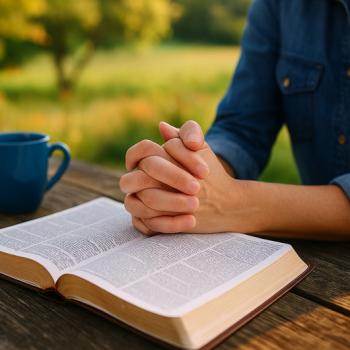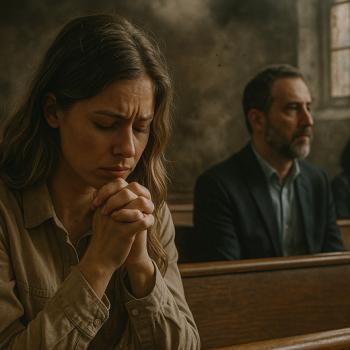
Every church needs faithful leaders who follow God’s design for leadership. That is why there is God’s Plan for Leading the Church and that matters. The Bible clearly uses the words “elder,” “pastor,” and “overseer” to describe the same office of leadership. These words reveal the full picture of what God expects from His church leaders. Elders are not just decision-makers—they are spiritual shepherds who guide, teach, and care for God’s people. Understanding this helps churches follow Scripture and avoid confusion about leadership roles. God designed elders to protect the flock, preach the Word, and model godly living.
Peter’s Clear Words
Peter speaks directly to church elders and tells them to shepherd God’s people with care and love. In 1 Peter 5:1-2 (NKJV), he says, “Shepherd the flock of God which is among you, serving as overseers.” This instruction shows that elders and pastors share the same responsibility. They must care for the people like shepherds watch their sheep. Peter also reminds them to serve willingly, not for selfish reasons. This proves elders are called to lead with humility and love, not with pride or power. Their calling reflects Jesus, the Chief Shepherd who gave His life for the flock.
Paul Appointed Elders
Paul gave churches structure by appointing elders in every city where he started a church. Acts 14:23 (NKJV) says, “They appointed elders in every church.” He didn’t choose just one leader—he chose several for each congregation. This shows shared leadership was always God’s plan, not a new idea. Paul knew that churches would face problems, so he placed multiple elders to bring balance and wisdom. Together, they could teach the truth, protect the church, and care for the people. This model helps churches remain strong, united, and focused on Christ’s mission.
Elders Must Be Good Examples
Elders lead best by living godly lives that others can follow. Paul outlines elder qualifications in 1 Timothy 3:2 (NKJV) says an elder must be “blameless.” This means people should see honesty, faithfulness, and self-control in their lives. An elder must be a faithful husband, a wise parent, and a peaceful neighbor. He must not be quick to anger, greedy, or addicted to alcohol. These qualities show the elder is mature and trustworthy. When elders live with integrity, others will naturally follow their example. Their lifestyle speaks louder than words and shows people how to follow Jesus.
Teaching the Bible
Elders must know the Bible and teach it clearly. Titus 1:9 (NKJV) says elders must “exhort and convict those who contradict.” This means they must teach sound doctrine and correct false ideas. Elders should know the Bible well enough to answer hard questions. They must be ready to defend the truth with wisdom and grace. Through teaching, elders help the church grow strong in faith and unity. Their words build people up and help them avoid spiritual traps. Teaching is not optional for elders—it is central to their pastoral role in the church.
Elders Care for the People
Elders must spend time with the people they lead. They visit homes, comfort the sick, and pray for the hurting. James 5:14 (NKJV) says, “Call for the elders… let them pray over him.” This shows elders must be close enough to know when people are struggling. They walk with members through grief, doubt, illness, and conflict. Their presence offers peace, and their prayers bring hope. Elders who care deeply reflect the heart of Jesus. They do not hide in offices—they go to the people and show love through action.
Elders Must Serve, Not Rule
Jesus taught that true leaders serve, not control. In John 13:15 (NKJV), He said, “I have given you an example.” He washed His disciples’ feet and told them to serve others with humility. Elders must follow that same path. They lead by helping, not by ordering people around. They put the needs of others above their own desires. True authority comes from love and service, not from a title. When elders lead like Jesus, people trust and respect their guidance. Servant leadership brings life and peace to the church.
Leading Together
God did not call elders to lead alone. He called them to work together in unity. Acts 14:23 (NKJV) shows Paul appointed multiple elders in each church. No one person had all the power or responsibility. A team of elders brings balance, wisdom, and accountability. They share the burden of decisions and the joys of ministry. This protects the church from pride, error, and burnout. Leading together reflects God’s wisdom and keeps the church strong through all seasons.
Watching Over the Church
Elders protect the church from spiritual danger. In Acts 20:28 (NKJV), Paul says, “Take heed… to all the flock.” Elders must stay alert and guard the people from lies, division, and false teaching. They must know what’s happening in the church and act quickly when danger appears. They also help people stay on the right path by teaching the truth. Their role as watchmen keeps the church focused on Christ and free from harm. A healthy church depends on elders who stay spiritually awake and ready.
Elders Must Know the Bible
Elders cannot lead well without knowing the Bible deeply. 2 Timothy 2:15 (NKJV) says, “Rightly divide the word of truth.” Elders must study regularly and handle Scripture with care. They should use the Bible to teach, correct, and guide others. When problems arise, the Bible gives them the answers they need. Elders who know Scripture are able to protect the church from error. They also build up believers with truth and wisdom. Bible knowledge makes their leadership strong and trustworthy.
Elders Help Others Grow
Elders help church members grow in their faith. Ephesians 4:12 (NKJV) says they equip the saints for ministry. That means elders train people to serve and lead. They teach classes, mentor new believers, and encourage spiritual gifts. As people grow, the church becomes stronger and more united. Elders don’t do all the work—they help others find their calling. This creates a church full of active, healthy believers. Growth is a key sign of faithful elder leadership.
Elders Make Hard Choices
Elders often face difficult decisions that affect many people. James 1:5 (NKJV) says, “If any of you lacks wisdom, let him ask of God.” Elders must pray often and listen to God’s voice. They must also talk with each other and seek wise counsel. Hard choices require courage and faith in God’s plan. Sometimes they must say hard things in love or change long-time habits. But when they trust God, He leads them well. Wise elders protect the church through strong, prayerful decisions.
They Show the Way
Elders must lead by example every day. Hebrews 13:7 (NKJV) says, “Follow their faith.” Their daily lives must match their teachings. People watch how they speak, work, give, and love. Elders who live faithfully encourage others to do the same. Their example builds trust, inspires growth, and brings honor to Jesus. Leadership without example is empty, but godly living teaches more than words ever can. Elders lead best when they walk the talk.
Teaching by Living
Elders teach through how they live, not just what they say. 1 Peter 5:3 (NKJV) says elders should be “examples to the flock.” Their actions reflect what they believe. People learn by watching how elders treat others, handle stress, and serve. A life that matches God’s Word becomes a powerful lesson. Hypocrisy destroys trust, but faith in action builds it. When elders live what they teach, the church sees Jesus more clearly.
They Work as a Team
Elders serve best when they work together. Ecclesiastes 4:9 (NKJV) says, “Two are better than one.” No elder should carry the load alone. A team of elders shares wisdom, support, and accountability. They encourage one another and balance each other’s weaknesses. This teamwork strengthens decisions and prevents burnout. A healthy elder team blesses the whole church. God designed elders to lead as a group, not as lone heroes.
They Must Be Humble
Pride can ruin any leader, so elders must stay humble. 1 Peter 5:5 (NKJV) says, “God resists the proud, but gives grace to the humble.” Humble elders admit mistakes, listen well, and serve joyfully. They remember that their authority comes from God, not from themselves. Humility makes people feel safe and loved. It also invites God’s help in every task. Elders who stay humble lead with strength and grace.
They Guide the Church
Elders help people follow God’s path. Proverbs 3:6 (NKJV) says, “He shall direct your paths.” Elders point others to Christ through teaching and prayer. They offer direction when people feel lost or confused. They help settle conflict and restore peace. Their wisdom keeps the church moving forward with purpose. By guiding others, elders fulfill their God-given role.
Prayerful Leaders
Elders must pray regularly and sincerely. Colossians 4:2 (NKJV) says, “Continue earnestly in prayer.” They pray for wisdom, healing, unity, and strength. Prayer keeps elders close to God and in step with His will. It also gives them courage to lead well. Prayer helps them stay focused and loving, even in hard times. A praying elder blesses the whole church.
They Guard the Truth
False teaching brings confusion and harm, so elders must defend the truth. Titus 1:9 (NKJV) says they must “convict those who contradict.” Elders protect doctrine and correct lies with Scripture. They do not ignore false ideas—they confront them with love and clarity. Protecting truth is a sacred task that keeps the church safe. Bold elders stand for truth, even when it’s hard.
Working with the Pastor
In many churches, a lead pastor works with a team of elders. They should not work alone or in isolation. Even the most gifted pastor needs support, counsel, and accountability. In Acts 15, elders and apostles gathered to solve a church issue together. This shows that leadership should be shared, not centered on one person. Elders and pastors complement each other’s gifts and share responsibilities. Working together protects the church from pride and poor decisions. It also strengthens unity and models biblical leadership for the congregation.
Caring Like a Shepherd
Elders must care like shepherds who love their sheep. John 10:11 (NKJV) says, “The good shepherd gives His life for the sheep.” Jesus laid down His life, and elders must reflect that same kind of love. A true shepherd knows the sheep by name and watches over them closely. Elders must do the same by being present, involved, and available. They check in on families, support the hurting, and guide the lost. Their care builds trust, safety, and spiritual health in the church. When elders care like Christ, people feel loved and secure.
They Earn Respect
Respect is not automatic—it must be earned through character and service. 1 Timothy 5:17 (NKJV) says, “Let the elders who rule well be counted worthy.” Elders earn respect by being honest, patient, and faithful. People trust elders who follow through on promises and handle issues with wisdom. When elders treat everyone fairly, people listen more closely. Respect grows when leaders serve with joy and humility. A respected elder helps build a respectful church culture. Their reputation reflects the gospel and points others to Jesus.
Watching Over Souls
Elders have a spiritual responsibility that goes beyond physical needs. Hebrews 13:17 (NKJV) says they “watch out for your souls.” This means elders care deeply about people’s spiritual condition. They help people grow in holiness and avoid sin. Elders offer counsel during doubts, correction during sin, and comfort during grief. They do not simply watch from a distance—they stay close and involved. Soul care takes prayer, time, and love. Faithful elders know they will answer to God for how they led. That truth makes their calling serious and sacred.
Loving the Church
Love is the heart of all elder ministry. 1 John 4:7 (NKJV) says, “Let us love one another.” Elders must lead from love, not duty or pride. They should genuinely enjoy caring for people, not just preaching or making decisions. Love leads elders to pray, visit, teach, and serve consistently. Without love, leadership becomes cold and mechanical. Love also makes elders gentle and forgiving when others fall. A loving church starts with loving leaders who reflect Christ’s own heart.
Following God’s Design
The Bible clearly lays out God’s design for church leadership. Elders are pastors, and they serve together to lead well. Ephesians 4:11-12 (NKJV) says God gave leaders “for the equipping of the saints.” This design builds up the church and prepares believers for every good work. Elders help churches grow strong in faith, love, and truth. When churches follow God’s plan, they stay healthy and unified. That’s why elders must take their calling seriously and lead with Scripture as their guide. God’s design is wise, beautiful, and effective for every church.
God’s Plan for Leading the Church
At the end of all these truths, we return to God’s Plan for Leading the Church. This truth matters because it shapes how we lead, teach, serve, and grow. Elders are not just board members or decision-makers—they are shepherds who guide souls. They serve by leading, teach by example, and care with love. The Bible does not separate pastors from elders—they are one and the same. This understanding helps churches stay faithful to Scripture and full of grace. When elders lead like Christ, the church shines with His glory.














